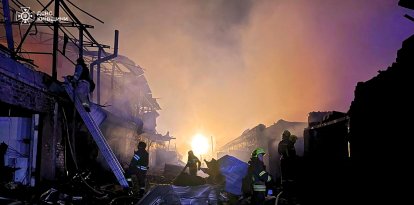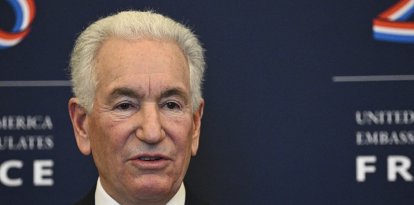Germany buys $8 billion in U.S. missiles amid concerns that Russia will escalate the war
The German defense minister promised to strengthen the army's capabilities through a substantial increase in both funding and resources.

JASSM Missile (Fuerza Aérea de Estados Unidos /USAF/ AFP)
In a move that reflects growing security concerns in Europe, Germany's air force ordered 75 U.S. cruise missiles. This purchase is intended to bolster Berlin's defenses in the face of a possible escalation of tensions between Russia and Europe.
Germany acquired $8.67 billion worth of JASSM-ER missiles. These weapons were developed by Lockheed Martin for the United States Air Force (USAF) and have an impressive estimated range of over 550 miles. These missiles, which were introduced into service in 2009, have already been deployed in the armed forces of Finland, Poland and Austria.
German Defense Minister Boris Pistorius recently promised to strengthen his country's armed forces by significantly increasing funding and resources for the Bundeswehr, the German army.
However, the exact reason behind the order for the new missiles has not been confirmed. This has led to speculation as to whether they will be used to bolster internal defenses or whether they will be shipped to another country.
German media reports suggest that Olaf Scholz, the German chancellor, has been in talks with the U.K. about a possible missile swap, known as a "Ringtausch." This exchange would allow Germany to indirectly provide Ukraine with more long-range missiles without violating the red line set by the chancellor himself.
Meanwhile, Bild, a German media outlet, reported that the JASSM-ER missiles could potentially be used as a replacement for the Taurus missile arsenal, citing sources familiar with the deal. The German government refused to send Taurus missile systems to Ukraine.
Concerns about a war with Russia
The growing concern among European countries about the possibility of a Moscow victory in a conflict with Ukraine is raising worries about Vladimir Putin's potential expansionist ambitions.
European leaders have discussed various options for dealing with this situation, including sending troops to Ukraine. Although this measure has not been approved, the mere fact it is being discussed has caused unease in the Kremlin and provoked threats.
"All this truly threatens a conflict with the use of nuclear weapons and, therefore, the destruction of civilization," expressed the Russian leader, who pointed out that an escalation could have catastrophic consequences on the global level.

























